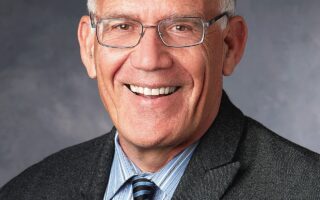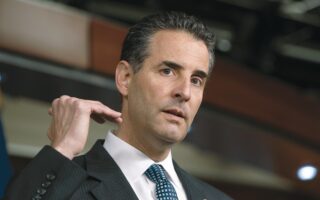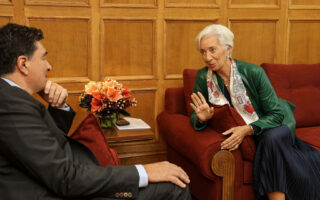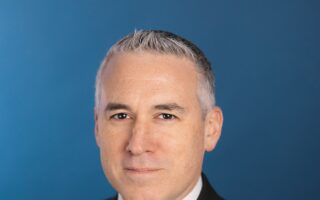What is left of the father?
Ahead of Athens lecture, Italian psychoanalyst speaks about influence of Greek mythology, contemporary fatherhood, and impact of technology
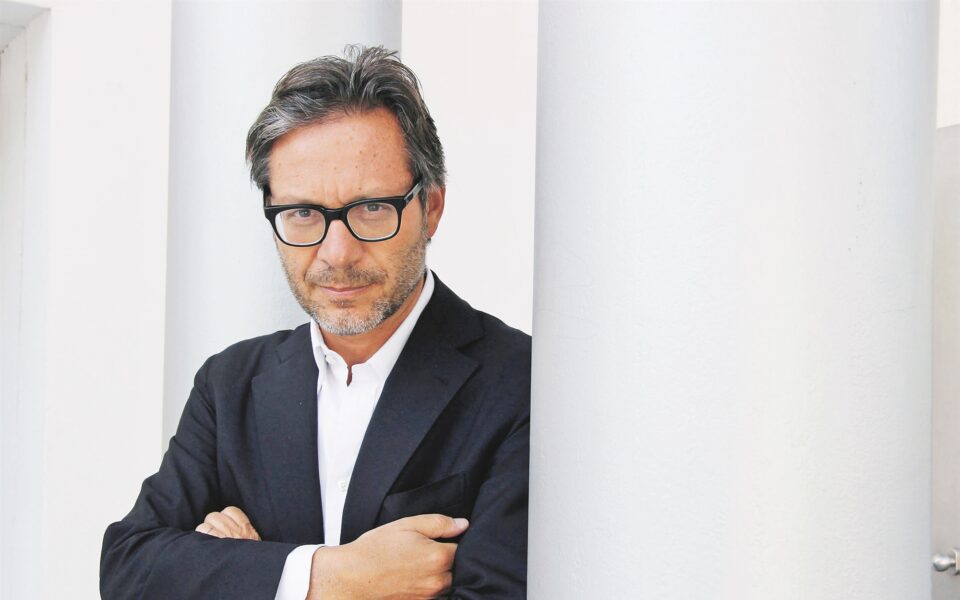
“What is left of the father at the time of his complete degradation?” This conceptual reflection dominates the book by Italian psychoanalyst Massimo Recalcati titled “The Telemachus Complex: Parents and Children after the Decline of the Father,” recently published in Greek by Kelefthos Publications.
A few days before his long-awaited lecture in Athens (November 11), whose tickets sold out quickly, the Greek public’s favorite psychoanalyst was interviewed by Kathimerini and spoke about the influence of Greek mythology on his work, the contemporary role of the father in the life of boys, and the impact of technology on the everyday life of young people, which he likens to a “virtual breast” that feeds the imaginary and parallel world of young people.
He has left an indelible mark on the science of psychoanalysis and is often referred to as the modern representative of the Freudian and Lacanian school of thought. Dr Recalcati gives us his reflection on scientists who are “experts” in everything, while penetrating the age-old question of atheism as central to psychoanalysis, differentiating “faith” from the term “belief” in the almighty “Other.”
Often the protagonists in your works are figures from Greek mythology. From Oedipus to Telemachus, your theories revolve around their lives and a deeper understanding of their personality traits. How did your interest in mythical figures begin?
Mythology always interested Freud, the father of psychoanalysis. As a psychoanalyst, I feel heir to this interest. But Freud took his inspiration from Sophocles’ Oedipus. Instead, I chose Telemachus. They are two completely different sons. The first is a cursed son, he is the patricidal and incestuous son, the second is the son who knows how to be a proper heir. I believe that our age is beyond Oedipus; we are in the age, now, of the son Telemachus. The focus is no longer on the fight to the death with the fathers but on the necessity of a new alliance between generations that will bring the law back to Ithaca, the heart of the “city.”
You often speak of the father-son relationship, while your work “The Telemachus Complex” delves into the different types of sons. How has this relationship been shaped over time and why are many young people now moving away from the footsteps and perceptions of their parents?
The Telemachus complex identifies the kind of invocation of fathers by sons. Modern fathers are indeed fathers divided, without solid foundations, diluted and incomplete. The father is no longer the symbol of the law. We now have fathers who resemble their children, that is, they play games, dress and talk like their children. But if the symbolic difference between generations breaks down, a great loss is created. This is a basic price of our time.
‘We now have fathers who resemble their children, that is, they play games, dress and talk like their children. But if the symbolic difference between generations breaks down, a great loss is created’
Based on the previous question, many say that digital life is replacing real life and that children’s interaction with social media makes them independent to the extent that they accept the prompts – the advice – of their digital “friends” rather than their parents. Do you think that a new type of son is now being formed, the one who has the biological father at home and the “digital” one in his life?
The technological object is like a big “chest.” It establishes a palindromic relationship of dependence, which has the power to nourish an imaginary world parallel to the real one. It is therefore a “breast” that feeds your illusion that you will find what you are looking for every time with the minimum of effort. But this hyperconnectedness is not only about our children’s world, but our own. We need to understand that hyperconnectedness is a form of disconnection. We are now disconnected from the real world by attaching ourselves to a “virtual chest.” That is why when a limit is introduced on mobile phone use it can create a state of anxiety in the individual – i.e. as if it were really the trauma of weaning. In schools, this trauma of disconnection, the separation from the “breast” should be imposed. Otherwise, there is not the necessary silence for thought, speech and culture to be born.
Knowing that you have treated hundreds of patients, has there been a particular case or clinical experience that has had a profound impact on your understanding of psychoanalysis?
Each patient forces the psychoanalyst to rediscover psychoanalysis. Each patient leads us to where the established theory is no longer able to support us, so each patient is an exception.
In your opinion, what are some common misconceptions about psychoanalysis?
The crisis of psychoanalysis coincides with the crisis of speech and its power. Our time, in one version, has liberated speech. Everyone talks and knows about everything. But according to another version, the speech that appears today as “free” is in fact very often a speech that is “empty” and without substance. We no longer believe, in fact, in reason and its essential characteristics. It has become stale air, it has been stripped, it is devoid of meaning and it has been nullified. Proof of this is the fact that today we rarely find anyone capable of listening to us. Let us not forget that only listening honors speech! Therefore, since psychoanalysis is a therapy based on reason and not based on the action of a psychopharmaceutical or behavioral therapy, then our words would be a farce and meaningless if we just babbled. This is one of the basic misconceptions of psychoanalysis, which, unlike psychiatry, shows that words are like bullets, that is, they can hurt you, wound you, and even kill you, but they can also bring you back to life after the fall, give your life meaning again and put it back in motion.
Psychoanalysts like Freud opposed religion, and atheism is central to many theories of psychoanalysis. How do you perceive issues of faith and the human need to place one’s fears and desires in the hands of a higher power?
I separate “faith” (“fede” in Italian) from “belief” (“credenza”). On the one hand, “belief” is a childish attitude. It is a superstition that brings about a palindromic dependence. On the other hand, “belief” is a leap into the void, a transcendence of the ego, an opening to otherness. We could say that “faith” is the decisive element that can make desire possible, as opposed to “belief,” which is a surrender of our desire into the hands of an all-powerful “Other.” Of course, we can have the belief that God is someone who secures us and have faith in our desire that pushes us toward this “Other.”
All of Massimo Recalcati’s books are published in Greek translation by Kelefthos Publications. The lecture titled “The Return of Telemachus” will take place on Saturday, November 11, at 6.30 p.m. at the Divani Caravel Hotel, at the invitation of the Italian Cultural Institute and Kelefthos Publications. The event will be moderated by the psychoanalyst-psychotherapist and author Marialena Spyropoulou.

